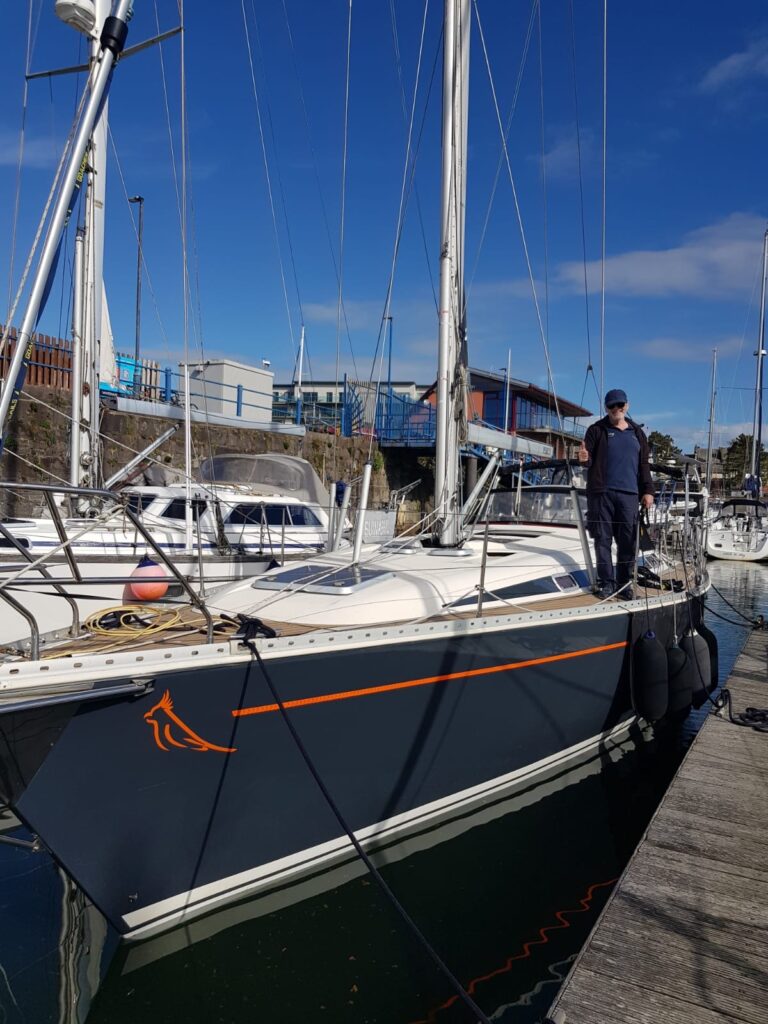 Percy is a much-loved cockatiel, so much so, that her owner’s racing boat is indeed named after her, with its hull, sails and racing uniform bearing her image…brilliant!
Percy is a much-loved cockatiel, so much so, that her owner’s racing boat is indeed named after her, with its hull, sails and racing uniform bearing her image…brilliant!
With today’s cockatiels being the descendants of countless generations of birds bred in captivity, ‘natural selection’ has now created birds that are very well adapted to and breed extremely well (probably too well) in captivity ………..and therein lies the problem.
In their native Australia they are continuously in a feast or famine balance only breeding when resources are plentiful (generally associated with seasonal rainfall), they have a mate and a safe nesting site.
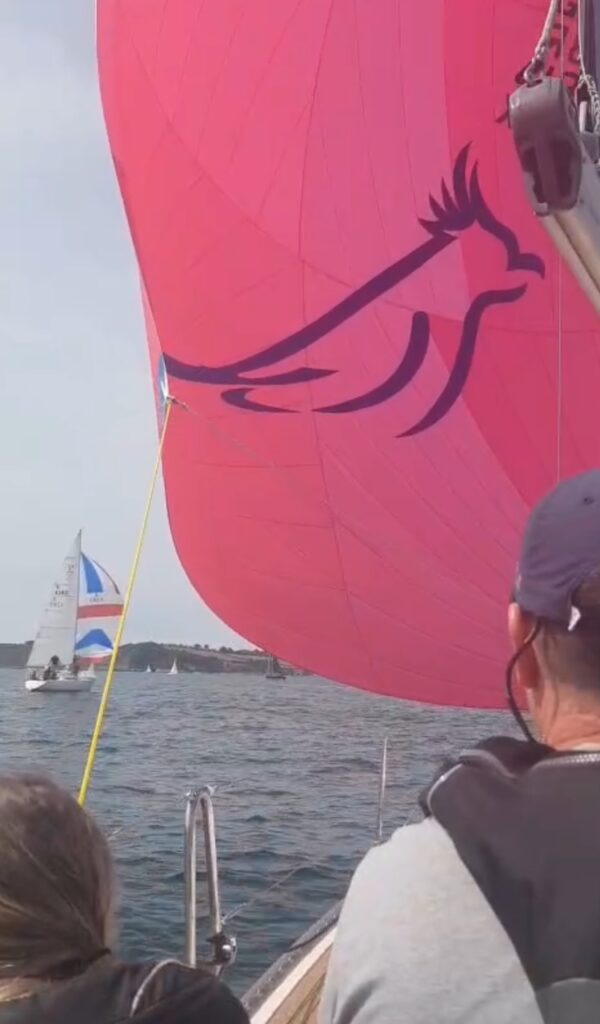 In captivity they often have all of the above and with hand reared/human imprinted birds their mate is often their owner (or in the case of Percy, Kevin, one of the crew, who Percy is particularly enamoured with, who incidentally shares the same hairstyle!) which creates the perfect storm to ‘make babies’ potentially all year round.
In captivity they often have all of the above and with hand reared/human imprinted birds their mate is often their owner (or in the case of Percy, Kevin, one of the crew, who Percy is particularly enamoured with, who incidentally shares the same hairstyle!) which creates the perfect storm to ‘make babies’ potentially all year round.
Obviously, birds are designed to lay eggs and so a couple of clutches of 4-7 is ‘biologically normal’, however any more than that can put a tremendous amount of strain on the system, draining calcium reserves and running the risk of egg binding or other reproductive related issues such as egg yolk peritonitis.
Some of these external factors/triggers can be managed, such as optimising their nutrition and weighing regularly so they don’t get too fat and therefore have spare reserves to stimulate egg production, removing/blocking potential nest sites (which can be any dark cavity e.g. cupboards, under the sofa etc.) and avoiding courtship behaviour from their human mates, such as excessive stroking and provision of warm soft foods. The introduction of toys and techniques to simulate wild food foraging 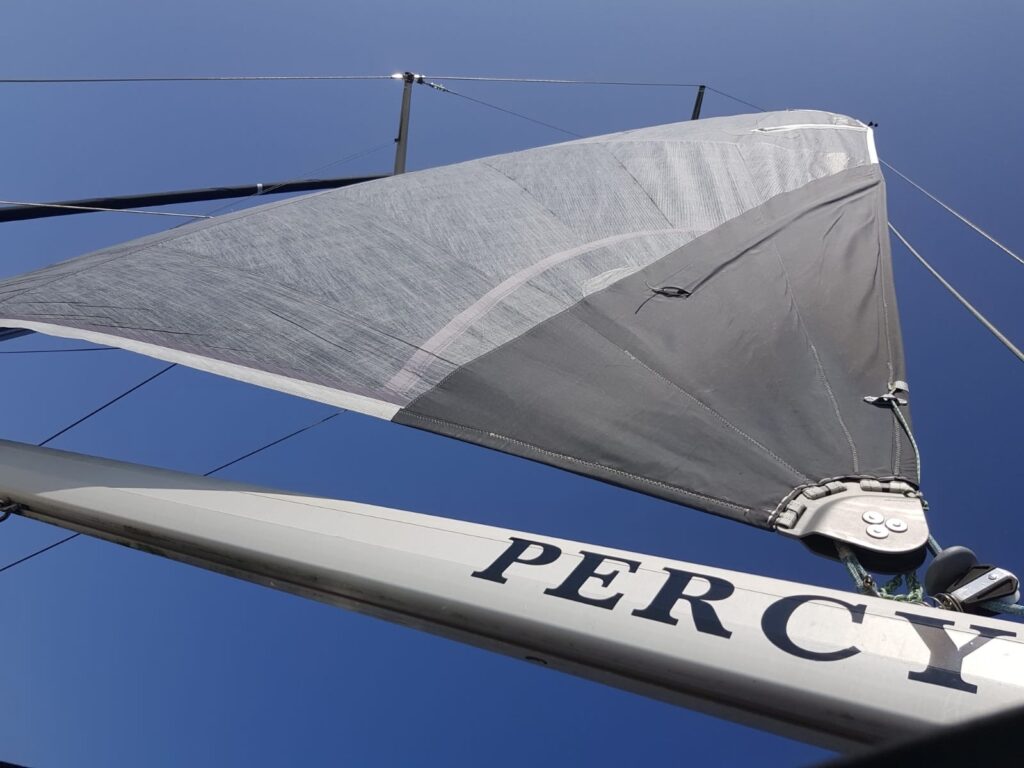 behaviour to prolong feeding time is also excellent for their mental health and results in less time to think about breeding!
behaviour to prolong feeding time is also excellent for their mental health and results in less time to think about breeding!
Despite our clients’ very best efforts however, we cannot change their genes and so even under the very best of care…. accidents do happen!
Percy is one such productive hen who even with 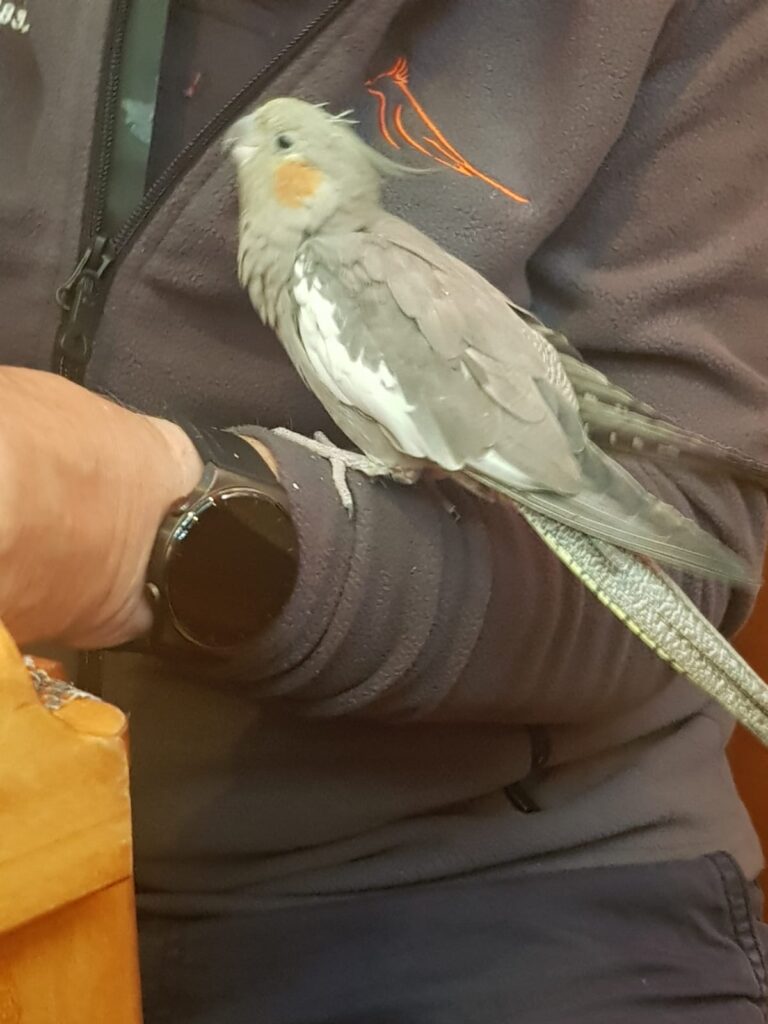 these ‘controllable factors’ taken care of, still lays more than we would like, on more than one occasion this has resulted in her becoming egg bound. This is a potentially life-threatening condition as the stuck egg can block the intestine and ureters from the kidneys, which if left untreated can result in death from kidney failure.
these ‘controllable factors’ taken care of, still lays more than we would like, on more than one occasion this has resulted in her becoming egg bound. This is a potentially life-threatening condition as the stuck egg can block the intestine and ureters from the kidneys, which if left untreated can result in death from kidney failure.
Effectively spaying a bird as you would a dog or cat is virtually impossible. Unlike mammals where the ovary is on a stalk that can be easily clamped off and ovary removed in its entirety, the avian ovarian tissue is literally spread all over the kidney, adrenal gland and some very large fragile major blood vessels.
Thankfully though, we now have some extremely useful hormonal preparations available to us (leuprolide injection and deslorelin implants) that can temporarily switch off laying and as they are very targeted to the reproductive pathways, have minimal side effects on the rest of the system. These injectable products, although actually designed for humans, dogs and ferrets are thankfully quite effective in the majority of our avian patients, so at least offer us a tool to manage such cases.
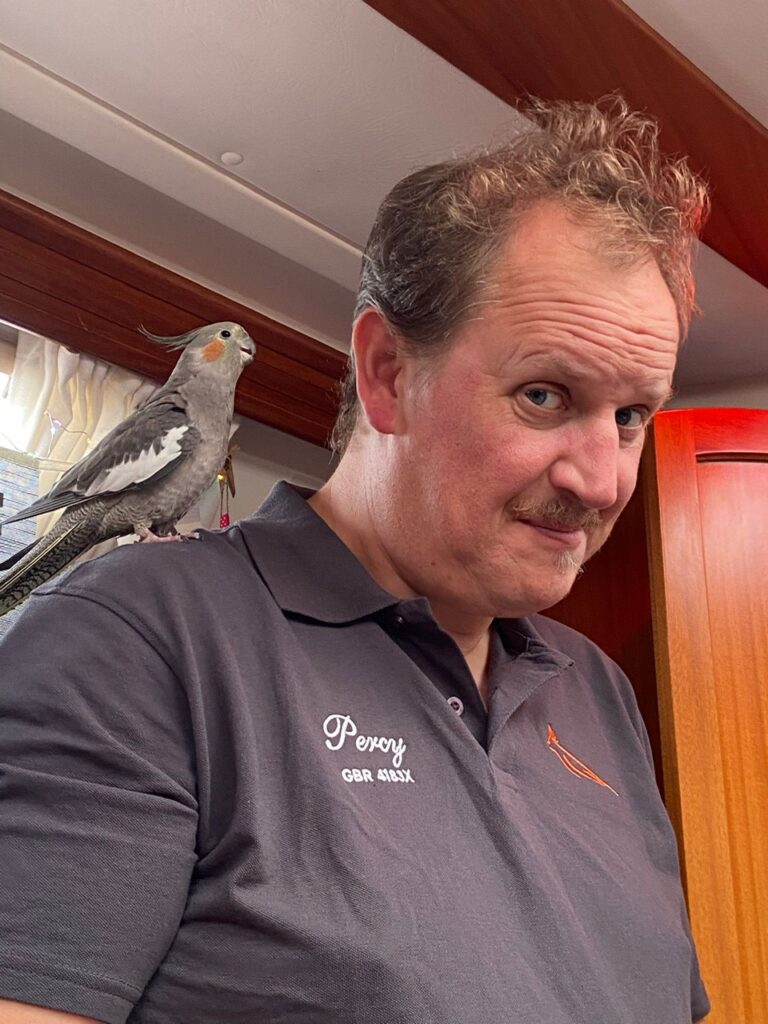 As was perfectly normal for Percy, in July of this year she had been out at sea with her family. However, when anchored off Dale on the south Wales coast, she suddenly became very unwell. Recognising the signs her owners John and Julie realised she needed veterinary attention immediately, which is clearly a problem when you are out at sea!
As was perfectly normal for Percy, in July of this year she had been out at sea with her family. However, when anchored off Dale on the south Wales coast, she suddenly became very unwell. Recognising the signs her owners John and Julie realised she needed veterinary attention immediately, which is clearly a problem when you are out at sea!
Without hesitation the anchor was raised and John skilfully and potentially quite scarily, navigated the shipping lanes to get to dry land at Milford Haven.
In the meantime, they had called AVS to let us know the situation and as time is of the essence in these situations, we decided to call in the services of avian specialist vet, Tom Bailey who works out of Seren vets in Carmarthen and a plan was hatched to get Percy to Tom via taxi from Milford Haven Marina ASAP.
The harbour master, clearly an animal lover, hearing of their plight, prioritised ‘The Percy’, (presumably making large tankers wait out in the channel!) and opened the lock to allow her in and get moored up.
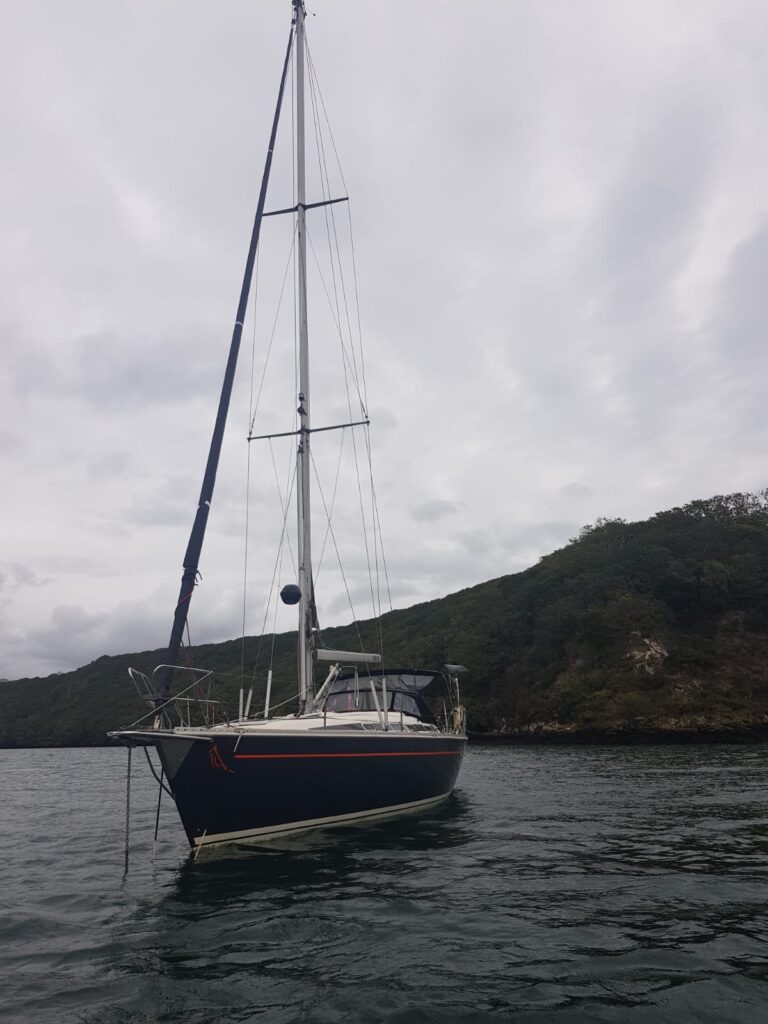 John, Julie and Percy then leapt into a taxi on an open-ended run, which later resulted in team Percy paying for the helpful driver’s lunch in a local restaurant while he waited for Tom to deal with his precious cargo.
John, Julie and Percy then leapt into a taxi on an open-ended run, which later resulted in team Percy paying for the helpful driver’s lunch in a local restaurant while he waited for Tom to deal with his precious cargo.
X-rays revealed not 1 but 2 eggs stuck (no wonder she was so poorly!). Thankfully with fluid therapy, calcium, pain relief and medications to help stimulate contracture of the oviduct she managed to lay an egg on the way back (though according to Julie this was likely aided by the G-force of some particularly pacy cornering by the driver!)
Once she had laid this egg, much to John and Julie’s delight, she was again able to pass her droppings normally and her demeanour and appetite improved dramatically……….. however, we knew one pesky egg still remained.
As she was now stable, we decided Percy was fit to travel up to Cheshire and after thanking Tom for his life saving efforts, we saw her when to all intents and purposes she appeared back to normal and we wondered if she had secretly managed to get rid of the second one? Sadly not, as palpation and a second x-ray confirmed.
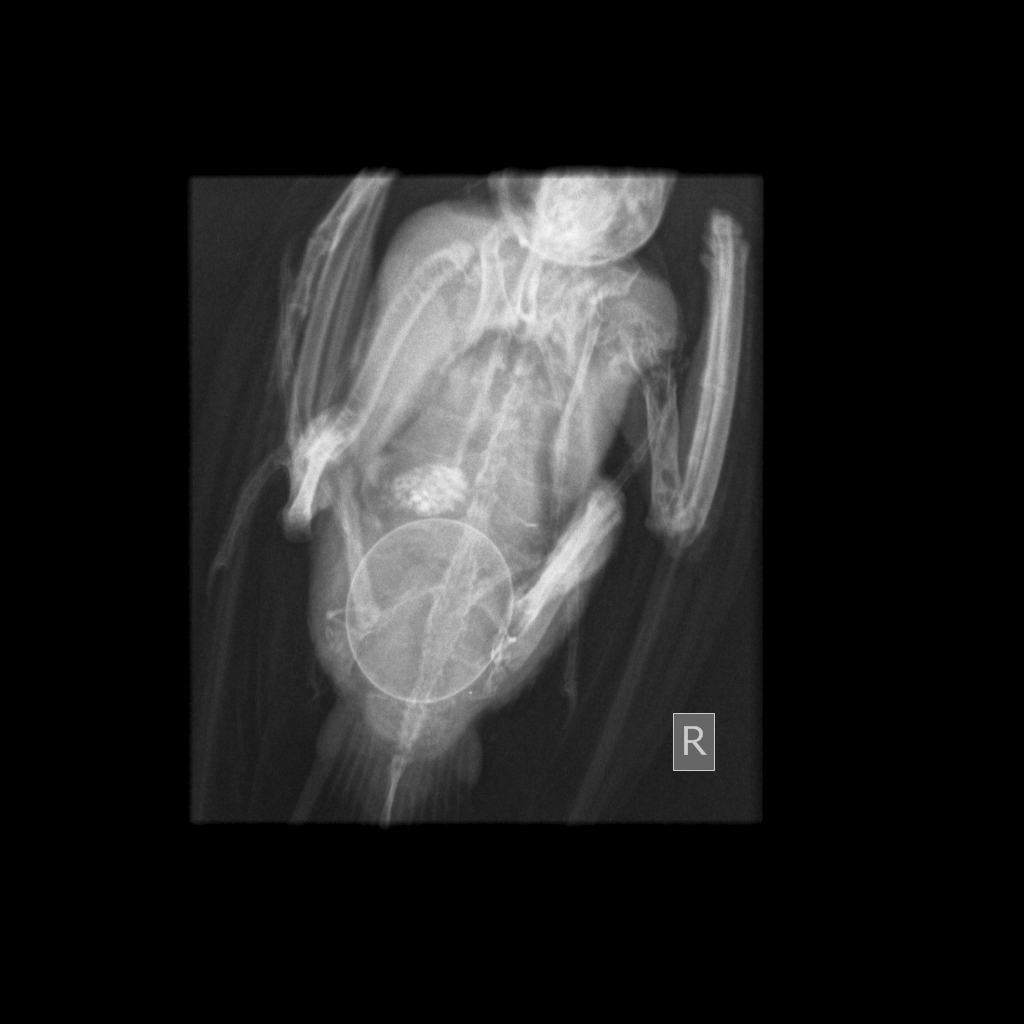 With her now quite well after a couple days supportive treatment, feeding and rest we wondered with a little ‘chemical help’ if we could encourage her to lay again, but when no egg was produced within 48 hours, possibly associated with the oviduct being ”overstretched’, our only option was to try and manually remove it under anaesthesia.
With her now quite well after a couple days supportive treatment, feeding and rest we wondered with a little ‘chemical help’ if we could encourage her to lay again, but when no egg was produced within 48 hours, possibly associated with the oviduct being ”overstretched’, our only option was to try and manually remove it under anaesthesia.
Once asleep and her vent relaxed, we were able to insert a small blunt needle into the egg, suck out the contents and collapse the now empty eggshell and remove it in its entirety.
Percy recovered uneventfully and she was injected with leuprolide to stop her laying for the next month or so to allow the oviduct to recover and very quickly was back to her normal self, much to everyone’s delight!
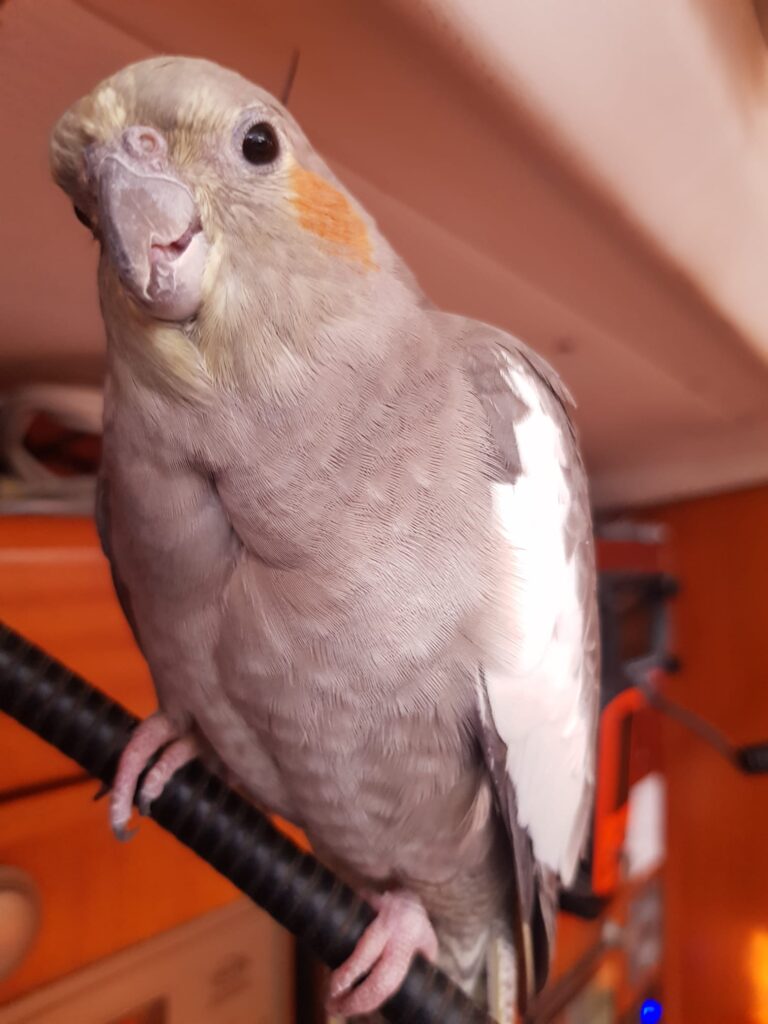 She has indeed been back to sea since her ‘pan-pan’, but now if she is going to be away for any length of time, (and especially if Kevin is on board !) , we coordinate a pre-emptive hormone jab, because as much as this multi-mode of transport, multi-vet adventure ultimately entertained us and this sort of rewarding care and teamwork is why we still love our job ……none of us really want to go through it again!!
She has indeed been back to sea since her ‘pan-pan’, but now if she is going to be away for any length of time, (and especially if Kevin is on board !) , we coordinate a pre-emptive hormone jab, because as much as this multi-mode of transport, multi-vet adventure ultimately entertained us and this sort of rewarding care and teamwork is why we still love our job ……none of us really want to go through it again!!
